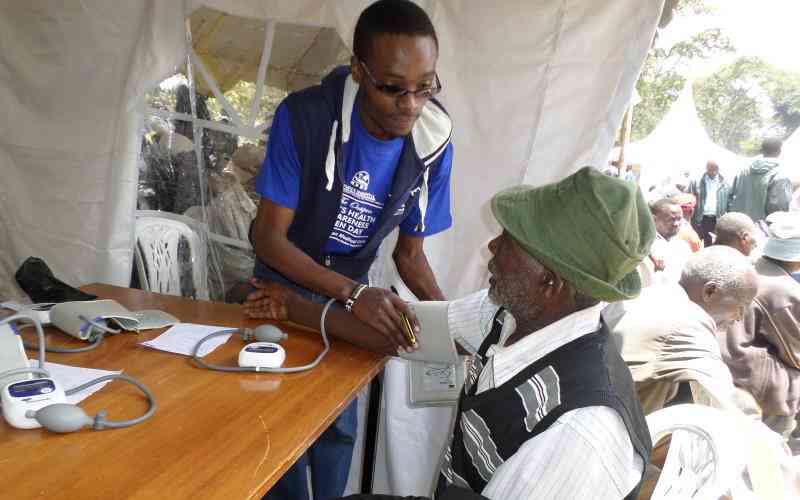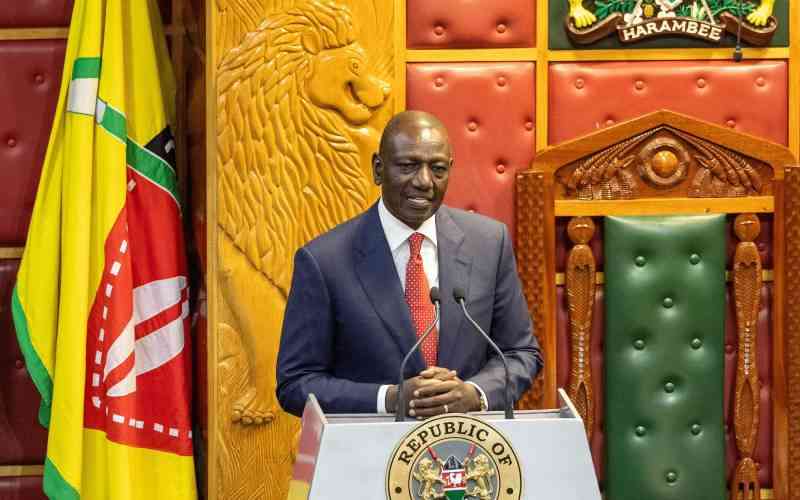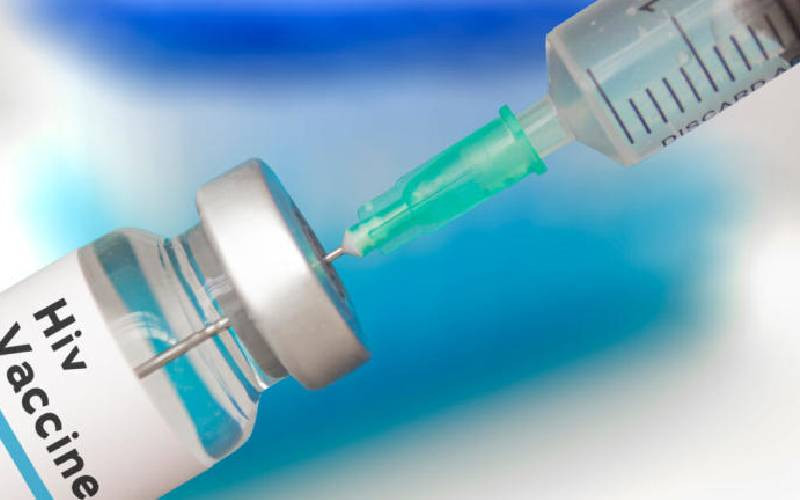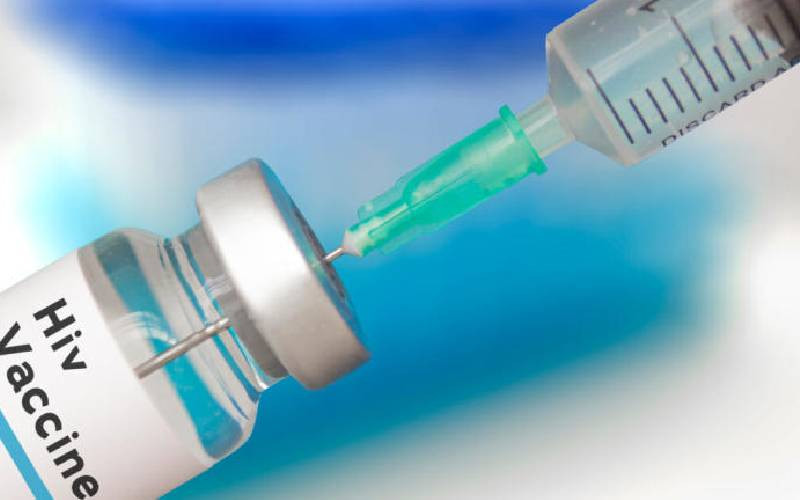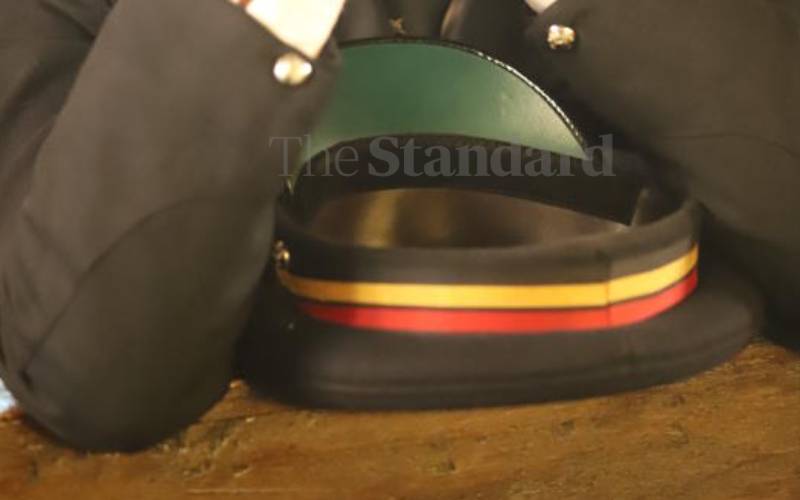
Between 2014 and 2020, more than 200 police officers took their lives. [Denish Ochieng, Standard)
From their training, the police are drilled to be tough. They are expected to show no emotions whether they are fighting criminals or dealing with road accident victims.
In reality, though, most suffer from post-traumatic stress disorder and depression. PTSD is a mental health condition triggered by a terrifying event - either experiencing it or witnessing it.
Nancy* a traffic officer in Njoro, Nakuru County, developed it after covering a grisly road accident at Kiamunyi in 2012.
The accident involved a boda boda man who had been run over by a car. As Nancy tried removing the body from the road, more vehicles ran over it, leaving it mutilated.
Nancy rushed to Nakuru town, about five kilometres away to buy a body bag so as to carry the body to the mortuary. And all the while, she did not even have protective gloves.
“As a traffic police officer, I have collected many bodies from accident scenes,” narrates Nancy. “But the one which was run over, is yet to get out of my mind. I was forced to collect broken bones soaked in blood. The body parts were scattered all over the road.
“It was a struggle to put those tiny body parts into the sack. Since then, I stopped eating meat. Can you imagine literally sweeping the road to collect parts of a human being you saw riding a motorbike a minute before he was hit?” she poses.
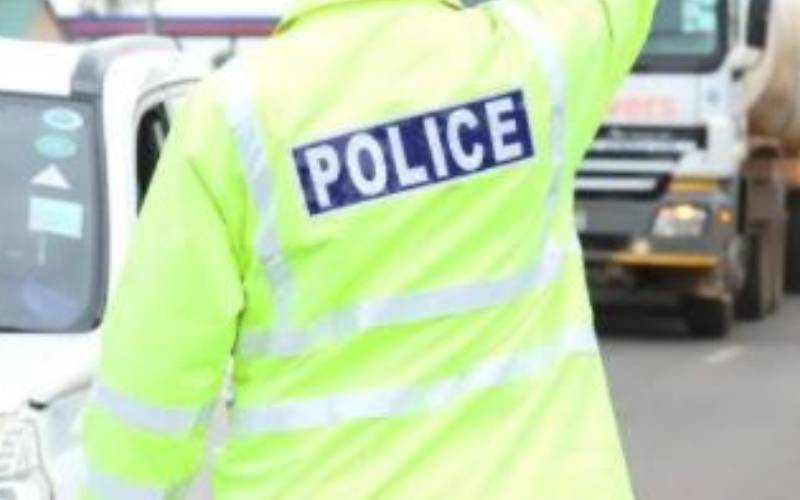
Counselling is rare, among the police - traffic cop. [File, Standard]
So how does she get over the memories? “I pray to get rid of the flashbacks, but they keep crossing my mind, more so at night. It is not easy.”
Surprisingly, as she opened up to one of her supervisors about the trauma, she was shocked when he told her that the more she covered such incidents, the more she would harden.
“Counselling is rare, among the police. Often, my boss has told me that the more I encounter such horrific scenes, the more they will help me forget the past encounters. I put on a strong face, but I hurt inside when collecting those bodies,” says the officer.
Nancy like many police officers silently suffers from PTSD and yet her bosses don’t seem to see the gravity of it, with their standard response “to be strong.”
In 2016, during the vetting of police officers in Nakuru, the National Police Service Commission was asked to look into issues of depression and trauma among the police.
Elphas Kipchuma, a police constable attached to Bomet traffic told the vetting panel that counselling was lacking, an issue that results in officers turning their guns on each other.
“When I joined the service 14 years ago, there were little issues of officers killing themselves but now, the incidents are so numerous that they need quick investigations,” Kipchumba said.
Narrating his own experience, the officer told the panel chaired by the former NPSC chairman Johnston Kavuludi that he was sent to Baragoi where 40 officers were killed by civilians but he never underwent any counselling.
Another officer, Francis Agesa Yoya attached to Kericho traffic base told the Commission that officers are traumatised by accidents and deaths reported on roads, and they often require counselling.
“Whenever there are accidents, traffic officers rush to the scene but unfortunately, they do not have equipment while performing rescue missions,” he said.
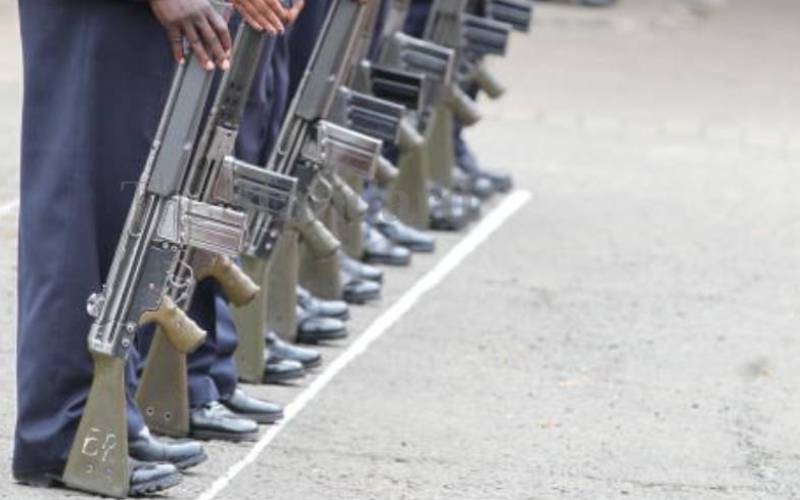
Perceived causes of suicide in Kenya police include mental disorders and exposure to traumatic scenes at work. [Courtesy]
Loice Noo Okello, a counselling psychologist said police are the most vulnerable people predisposed to trauma and depression and mitigating trauma means conducting a debrief. “There is no vaccine, or drugs for trauma, other than talk therapy,” she says.
Data by the International Journal of Current Research (Evaluation of Homicide in Police Force: the Kenyan perspective), Amnesty International, between 2014 and 2020, more than 200 police officers took their lives.
Perceived causes of suicide in Kenya police include mental disorders and substance abuse, exposure to traumatic scenes at work, housing conditions of police officers and access to weapons.
Other issues include workload and working hours, workplace bureaucracy and social isolation.
Dr Edith Kwobah, a consultant psychiatrist at Moi Teaching and Referral Hospital says police officers work in a tough environment, and a number of them cope negatively with trauma.
“Police carry dead bodies, visit accident scenes and put out fires. Gradually, they develop trauma,” she says.
The mental expert has been sensitizing police on self-care across the country.
 The Standard Group Plc is a multi-media organization with investments in media platforms spanning newspaper print
operations, television, radio broadcasting, digital and online services. The Standard Group is recognized as a
leading multi-media house in Kenya with a key influence in matters of national and international interest.
The Standard Group Plc is a multi-media organization with investments in media platforms spanning newspaper print
operations, television, radio broadcasting, digital and online services. The Standard Group is recognized as a
leading multi-media house in Kenya with a key influence in matters of national and international interest.


